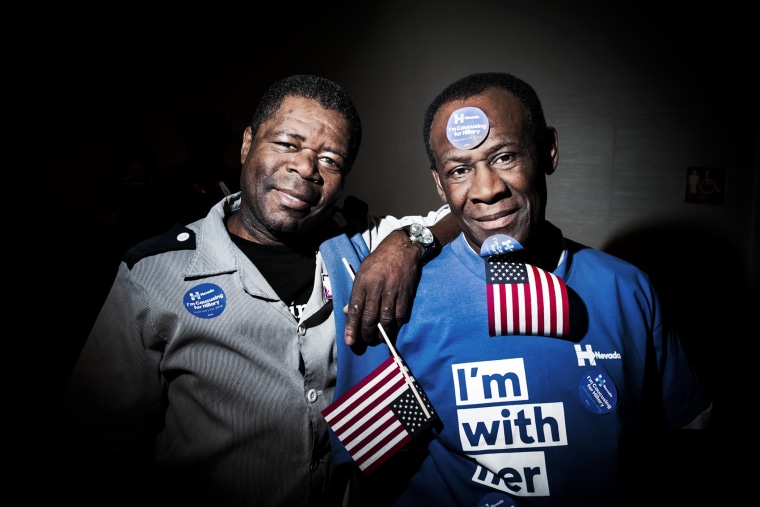Hillary Clinton notched an important victory in Saturday's Nevada caucus, winning a diverse state and building significant momentum before a series of primary contests in which she is likely to be favored by significant margins.
A look at early entrance polls in the Silver State gives us a picture of how Clinton built a winning coalition in the state. Here are some of the biggest takeaways:
1) Clinton's appeal to traditional Democrats paid off. At an MSNBC town hall two days before the caucuses, Hillary Clinton made her first direct attack on Sanders' political affiliation, saying that "Senator Sanders wasn't really a Democrat until he decided to run for president." In Nevada, where 80 percent of the electorate described themselves as traditional Democrats rather than as independents, it was a strategy that worked. Among the eight-in-ten self-described Democrats who participated in Saturday's caucuses, 58 percent supported Clinton, versus just 40 percent who backed Sanders. And while Sanders won by an overwhelming three-to-one margin among self-described independents, their share of the electorate was too small to boost him to victory.
2) Unions made a difference. In the mid-day Nevada contest, labor unions hold significant sway, particularly in union-dominated casinos in Las Vegas. In Saturday's contest, 28 percent of voters said that they or someone in their household belonged to a labor union. While Sanders and Clinton ran about even with those NOT affiliated with a union, Clinton bested Sanders with labor-affiliated voters by 11 points.
3) She performed relatively well with liberals. In New Hampshire, where Sanders notched a 22 point victory over the former secretary of state, Clinton badly lost both voters who described themselves as liberal and those who called themselves more moderate. But in Nevada, her margins with liberals looked much like they did in Iowa, holding Sanders to a single digit advantage with liberals and beating him decisively among moderate and conservative Democratic caucus-goers.
4) Sanders may have exceeded expectations with minority voters, but it wasn't enough. Early entrance polls showed Sanders leading Clinton by high single digits among Hispanic voters, a margin that political experts are eying with skepticism after seeing the final results in the state. But even if Sanders did better than expected with Latinos, Clinton's apparent dominance with African-American voters - who made up about 13 percent of the electorate -- boosted her to an overall double-digit lead among non-white voters and helped underscore her campaign's argument that Sanders can't be as competitive with minority voters as she can.
5) She still has a young voter problem. As in previous contests, Clinton's strongest performance within a demographic group came with senior voters, who supported her by a three-to-one margin. But the age breakdown between the two candidates remains as stark as it has been in the previous two state matchups. Among voters 17-44 in Nevada, Clinton lost by close to 50 points.
6) And she still has a trust problem. Clinton did overwhelmingly well, as she has in past contests, among those who say they most value a candidate who can win in November. But among the quarter of voters who say they're most interested in a candidate who's "honest and trustworthy," more than eight-in-ten said Sanders was their choice for the caucus. With now three results in the books showing honesty as a major issue for Clinton, the argument over her trustworthiness is sure to continue to haunt her in future contests.
This story first appeared on NBCNews.com.
